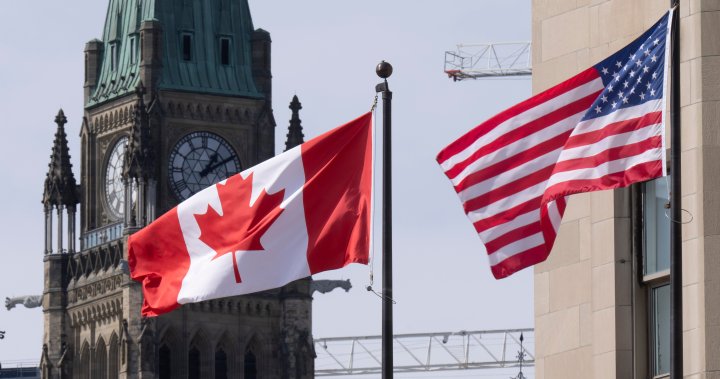The head of BMO, Darryl White, emphasizes the importance of continued investment and attention in Canada-U.S. trade relations. He notes that while both countries recognize the significance of the bilateral relationship, it cannot be taken for granted. This message was delivered at the U.S.-Canada Summit in Toronto, which focused on key issues such as trade, security, technology, and energy. The event was attended by business leaders, U.S. governors, and political representatives from both countries. With upcoming elections in both the U.S. and Canada, as well as the looming renewal of the free-trade agreement for North America in 2026, White stresses the need for proactive engagement in shaping the future of the relationship.
White acknowledges the uncertainty surrounding the U.S.-Canada relationship amidst the upcoming elections, noting that companies are trying to anticipate potential implications but many unknowns remain until after the election. Despite the long timeline leading up to these events, White views it as a critical moment that requires immediate attention. The U.S.-Canada Summit, co-hosted by BMO and Eurasia Group for the second year in a row, serves as a platform for discussions on pressing issues facing the two countries. While last year’s focus was on recession concerns that have yet to materialize, this year’s event places a spotlight on the upcoming elections and their potential impact on the relationship.
The 2023 U.S.-Canada Summit highlighted climate change with speakers like climate scientist Katharine Hayhoe and former climate change minister Catherine McKenna, as well as the CEOs of Enbridge and Dow Inc. This year, while climate issues remain a key focus, they may not be as prominently featured on the agenda. White hopes that the summit will foster meaningful conversations that strengthen the partnership between the U.S. and Canada. He emphasizes the need for constant attention and investment in maintaining robust bilateral trade relations, as well as fostering collaboration on key issues such as climate change, technology, and energy transition.
As the U.S. presidential election approaches, along with the anticipation of a Canadian election less than a year later and the renewal of the free-trade agreement for North America in 2026, the landscape of U.S.-Canada trade relations is facing significant shifts. White notes that while businesses are preparing for various scenarios, much remains uncertain until after the elections take place. The U.S.-Canada Summit serves as a platform for dialogue among business leaders, politicians, and key stakeholders from both countries to address the challenges and opportunities in the bilateral relationship. White emphasizes the need for proactive engagement and continuous investment in strengthening the partnership between the U.S. and Canada on various fronts, including trade, security, technology, and energy.
While the U.S.-Canada Summit delves into critical issues facing the two countries, including trade, security, technology, and energy, the upcoming elections in both the U.S. and Canada add an additional layer of uncertainty to the relationship. White underscores the importance of ongoing attention and investment in maintaining strong bilateral trade relations, especially amidst changing political landscapes. The summit provides a platform for leaders from both countries to engage in meaningful discussions that can shape the future of the U.S.-Canada relationship, with a focus on issues such as climate change and energy transition. White remains hopeful that the summit will facilitate constructive dialogues that further strengthen the crucial partnership between the U.S. and Canada in the years ahead.


